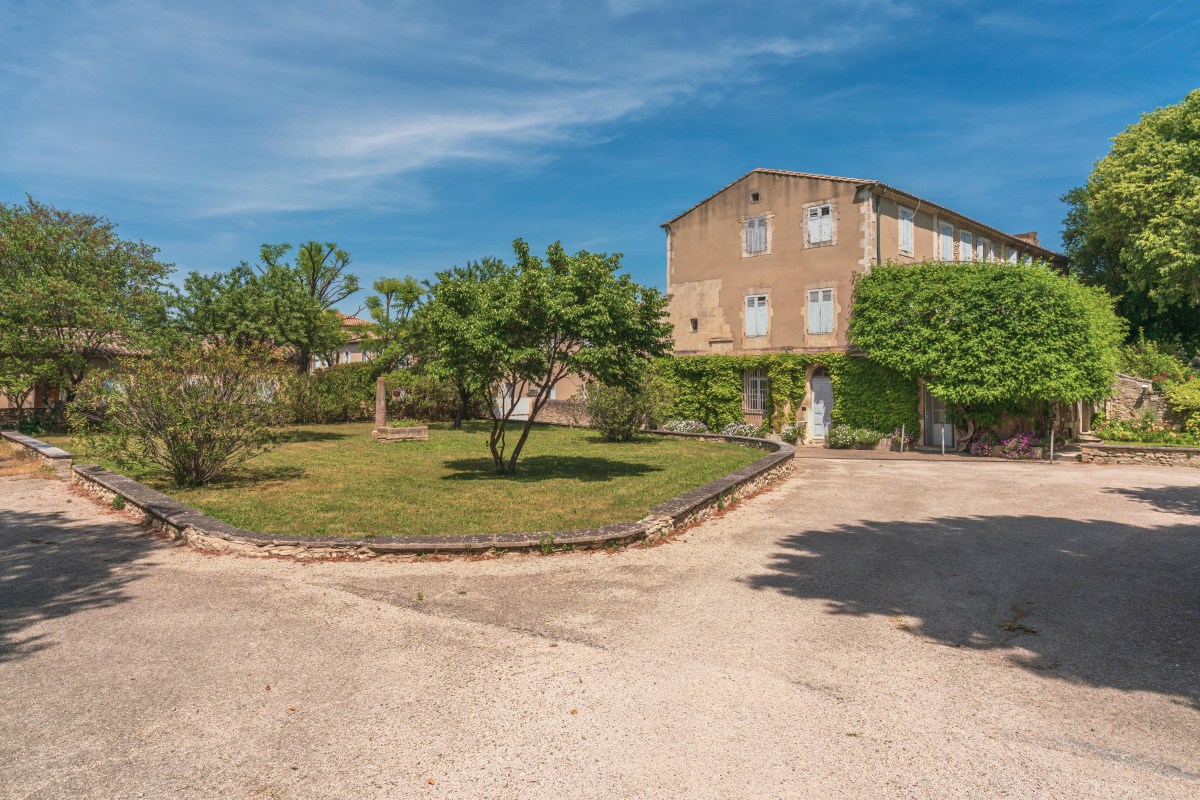When, in the opening minutes of Natatorium, a fresh-faced teen arrives at a blocky modernist showplace of a house, it seems she’s checking in to a swanky Airbnb. But the well-appointed dwelling, where an oppressively dark glacial blue predominates, turns out to be the unwholesome home of the grandparents she hasn’t seen in years. Estrangement and silence are the guiding principles within this hermetically sealed universe, which, as the title of Helena Stefánsdóttir’s drama indicates, contains an indoor swimming pool. “Don’t go into the basement” would be a handy subtitle. Not that the upper floors offer much refuge.
In a movie that ultimately centers on a trinity of female kin at cross-purposes — visiting Lilja, her formidable grandmother and moderately rebellious aunt — the 18-year-old outsider is the catalyst for the revelations and unraveling to come. Traveling from her island home, Lilja (Ilmur María Arnarsdóttir) arrives in the city by bus, cello in tow, to stay with the relatives she barely knows while she goes through the audition process for a performance troupe. (After a brief sequence of exterior shots, there’s no sense of the surrounding world once the story kicks in.)
Natatorium
The Bottom Line
An effective fusion of restrained and bonkers.
Venue: International Film Festival Rotterdam (Bright Future)
Cast: Ilmur María Arnarsdóttir, Elin Petersdottir, Stefanía Berndsen
Director-screenwriter: Helena Stefánsdóttir
1 hour 46 minutes
Her arrival sets off alarm bells in a range of keys and registers. Lilja’s father, Magnús (Arnar Dan Kristjánsson), not seen until late in the proceedings, calls his younger sister Vala (Stefanía Berndsen) to ask her to keep an eye on Lilja. In a measure of the familial warmth among this bunch, Vala’s greeting is not “Hello” but “Why are you calling me?” He’s hoping she might lure his daughter away from the home of Áróra (Elin Petersdottir) and Grímur (Valur Freyr Einarsson). His reasons for concern are unspoken — but it soon becomes clear that nobody in this small clan says much of anything in direct terms when talking around the subject is an option.
Not least among the talked-around subjects are two of Áróra and Grímur’s children: a girl who died years earlier, very young, and bedridden 28-year-old Kalli (Jónas Alfred Birkisson), Vala’s twin and the centerpiece of Áróra’s project in depravity. He’s a fey Jesus figure wasting away in a room that suggests medical care but offers none, filled with flotsam and jetsam and the record books Áróra keeps of vital signs. He’s the first thing she insists on showing Lilja upon her arrival, like a science project of which she’s proud. It takes an outsider, Magnús’ girlfriend Irèna (Kristín Pétursdóttir), to break the spell, at least for a second, when she asks the obvious question: Why isn’t he in a hospital?
With distinctive lips and hooded eyes that recall Charlotte Rampling, Petersdottir (whose screen credits include, at the other end of the spectrum, Eurovision Song Contest: The Story of Fire Saga) inhabits the role of Áróra with quiet menace. Áróra is the sort who, without irony or humor, tells her husband to “use your words.” The woman’s a twisted mother superior eyeing prey, and there’s a pseudo-Christian element to the rituals she devises of baptism and penance (read: torture). Grímur, as warm and homey as she is frosty, watches with mild alarm as she guides the newly arrived Lilja in some sort of prayer. He’s the nurturing cook in the household, keeping the madness fed, and, like many a willfully blind enabler, he sleeps blissfully.
In response to Áróra’s hushed, harsh religion, there are gestures of pagan rebuttal: the crown of flowers the wilting Kalli sometimes wears, the real remedies of the thriving apothecary Vala owns. But, wracked with guilt over her twin’s fate, Vala is defiant only to a point. She drinks and looks the other way most of the time, parroting the party line that “he has weak lungs.”
So too does everyone agree that the pool in the basement has been empty for years, even if they haven’t ventured downstairs to look. They might as well be regurgitating headlines about a far-off place. Lilja, though, discovers the truth soon after she arrives, and perhaps at her peril.
The water theme percolates ominously through the striking production design by Snorri Freyr Hilmarsson, which uses a cold palette and pebbled glass, among other elements, to create a kind of streamlined baroque. The pool itself occupies a space somewhere between haute décor and nightmare. With sinuous moves and mounting foreboding, Kerttu Hakkarainen’s camerawork creeps through the secrets-laden house, abetted by Jacob Groth’s score, and a bit of Schubert, in conveying entwined moods of mournfulness and suspense.
With only three shorts to her credit, writer-director Stefánsdóttir has made an impressive first feature, assembling a superb cast and a strong roster behind the camera. Her screenplay (partly inspired by the short story “Swim” from Celeste Ramos’ self-published collection Women in Strange Places) might have benefited from more concision and fewer narrative elements, but there’s a compelling translucency to the movie’s water symbolism. Here are people caught up in an element most of them refuse to see. The elaborate costume Lilja dons for her audition is that of a naiad (and where she chooses to hang it in the house suggests the upheaval to come). When her childhood friend and romantic interest, David (Stormur Jón Kormákur Baltasarsson), visits her, he enters via a window, after the rest of the household is asleep, an innocent sneaking into an inhospitable morass.
Late in the drama, Magnús utters a devastating line to his sister. Having escaped his parents’ sphere of influence and built his life on a nearby island, he will maybe be the one to tear down the pretense of civility and expose the truth. (The shot of him and Vala dutifully blowing up balloons for a family celebration is priceless.) But after hearing his sister’s heartfelt take on what they’ve been through, he retreats: “I’m sorry to hear that you perceive it like that,” he tells her, like any bureaucrat humoring a courageous and inconvenient protester.
Individual scenes and moments in Natatorium might be exasperating, or make you wonder why all these people are lying to themselves and one another, but the cumulative effect is potent, its implications significant. At once elegant and bizarre, this is, sadly, a universal story of self-protective silence and fear, and the monsters who sometimes lead us, whether the group in question is a family, a business or an electorate.

























































